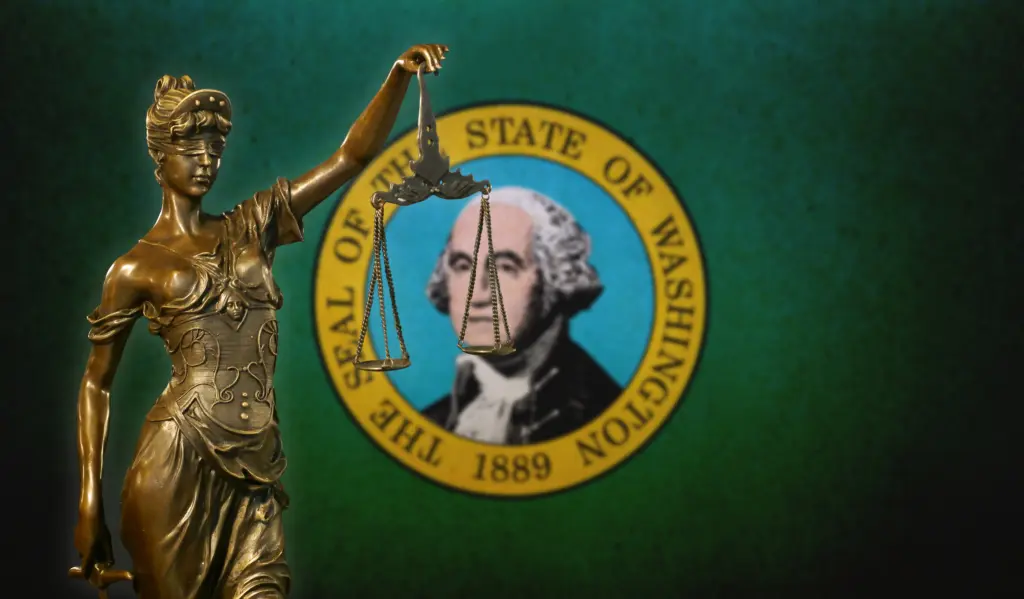
Nevada’s self-defense and Stand Your Ground laws are vital components of the state’s legal framework, giving people the right to protect themselves and others from immediate harm. These laws allow the use of force—including deadly force—without the need to retreat, ensuring that people can respond swiftly and decisively to unlawful threats. Whether at home, in public, or anywhere they have a lawful right to be, Nevada’s residents and visitors are empowered to act when faced with imminent danger.
However, these protections come with important legal responsibilities. Knowing the boundaries of self-defense and understanding how Nevada’s Stand Your Ground law applies in different scenarios can mean the difference between justified action and facing criminal charges. Staying informed is crucial for anyone seeking to protect their safety without crossing the line into unlawful conduct.
What is Nevada’s Stand Your Ground Law?
Nevada’s Stand Your Ground Law is based on the principle that people have no obligation to retreat from a threat and is allowed to use a reasonable amount of force to defend yourself from harm that is imposed from another person. If an person reasonably believes they are in danger of serious bodily harm or death, they are legally permitted to use force, including deadly force, to defend themselves.
This law contrasts with the “duty to retreat” requirement found in some states, where individuals must first attempt to avoid confrontation before resorting to force. In Nevada, however, you have the right to stand firm and protect yourself without any legal requirement to retreat from the situation.
Legal Foundations of Nevada’s Stand Your Ground Law
The Stand Your Ground Law in Nevada operates under NRS (Nevada Revised Statutes) 200.120 and NRS 200.200. These statutes outline the legal parameters for self-defense. According to NRS 200.120, a killing may be justified if it is committed in self-defense, especially when the person has a reasonable fear of death or serious injury.
Furthermore, NRS 200.200 reinforces that individuals defending themselves within their home (under the castle doctrine) or any location where they have a legal right to be. This statutory framework grants individuals broad protections in situations involving self-defense, especially in scenarios where retreat was not an option.
The Difference Between Stand Your Ground Law and Castle Doctrine
The castle doctrine complements Nevada’s Stand Your Ground Law by providing that individuals are entitled to use force to protect themselves within their homes or vehicles. However, Stand Your Ground applies beyond these private spaces. In Nevada, the law permits self-defense anywhere an individual has a lawful right to be, such as public spaces, workplaces, parking lots, or streets.
While the castle doctrine focuses on protection within the home, Stand Your Ground ensures the same principle applies in other settings. This extended protection means that an individual can respond to threats immediately, regardless of the location, without fearing legal consequences for failing to retreat.
When Can Force Be Used Under Nevada’s Stand Your Ground Law?
In Nevada, force can be used legally if the following criteria are met:
- Reasonable Fear of Imminent Harm: The person must have a legitimate reason to believe they are in immediate danger of severe injury or death.
- No Duty to Retreat: There is no requirement to retreat before using force, as long as the individual is in a place where they have the legal right to be.
- Proportional Force: The force used must be proportional to the threat. If the threat is non-lethal, deadly force may not be justified.
These elements ensure that self-defense actions are evaluated within a legal framework that protects those who act reasonably when facing serious threats.
Limitations and Exceptions to Nevada’s Stand Your Ground Law
While Nevada’s Stand Your Ground Law provides extensive protections, there are limitations and exceptions. For example, the law does not protect individuals who provoke violence or engage in illegal activities. If a person initiates a confrontation or escalates the situation, they may lose the legal protections provided by the statute. Additionally, law enforcement officers are exempt from the provisions of the Stand Your Ground Law while performing their duties. This means that officers have different legal requirements in situations where they must use force.
Self-Defense and Firearm Use Under the Stand Your Ground Law
Nevada’s Stand Your Ground Law often comes into focus in cases involving the use of firearms. If a person uses a gun to protect themselves, the law requires that the use of the firearm be both reasonable and necessary in the circumstances. With that in mind, it’s crucial for gun owners to recognize that even in self-defense, using a firearm improperly can have serious legal consequences. If the situation doesn’t truly call for such force, it could result in criminal charges—turning a moment of protection into a long legal battle.
To stay within the legal boundaries, individuals should ensure they are familiar with Nevada’s gun laws, including concealed carry regulations, and act only when there is a clear threat to life or safety.
How Courts Evaluate Stand Your Ground Cases in Nevada
When a Stand Your Ground case goes to court, the following factors are usually examined:
- Reasonableness of Perceived Threat: The court will determine whether a reasonable person in the same situation would have felt threatened.
- Location of the Incident: Whether the individual was in a place where they had a lawful right to be.
- Proportionality of the Response: The force used must align with the threat level.
- Presence of Provocation: If the defendant provoked the encounter, the legal protections may not apply.
These evaluations are critical in determining whether the individual’s actions were lawful under the self-defense statutes.
Public Perception and Controversies Surrounding the Law
Stand Your Ground laws have sparked debates and controversies across the United States, including Nevada. Supporters argue that the law empowers individuals to protect themselves without fear of legal repercussions. Critics, however, contend that the law can encourage unnecessary violence and lead to tragic outcomes, especially in cases involving racial bias or misunderstandings. While the efforts to modify or repeal the law have not gained significant traction in Nevada, the public continues to scrutinize its application, especially in contentious self-defense cases.
Practical Tips for Navigating Stand Your Ground Situations in Nevada
- Know Your Rights: Familiarize yourself with Nevada’s self-defense laws and gun regulations.
- Act Only When Necessary: Use force only when there is an imminent threat.
- Avoid Confrontations: While Stand Your Ground allows you to defend yourself, avoiding conflicts is always the safest approach.
- Seek Legal Counsel: If involved in a Stand Your Ground situation, contact a criminal defense attorney immediately.
Protect Your Rights with West Coast Trial Lawyers
At West Coast Trial Lawyers, we understand the complexities surrounding Nevada’s Stand Your Ground Law and how it can affect your future. If you or a loved one has been involved in a self-defense incident due to someone’s negligence or recklessness—or if you are facing legal challenges related to the use of force—our skilled attorneys are ready to fight for your rights. We will guide you through the legal process, ensuring your side of the story is heard and justice is pursued.
Don’t wait to get the representation you deserve. Call (213) 927-3700 or use our online contact form to speak with our legal staff today. Your case matters, and we are here to help you achieve the best possible outcome.













































































